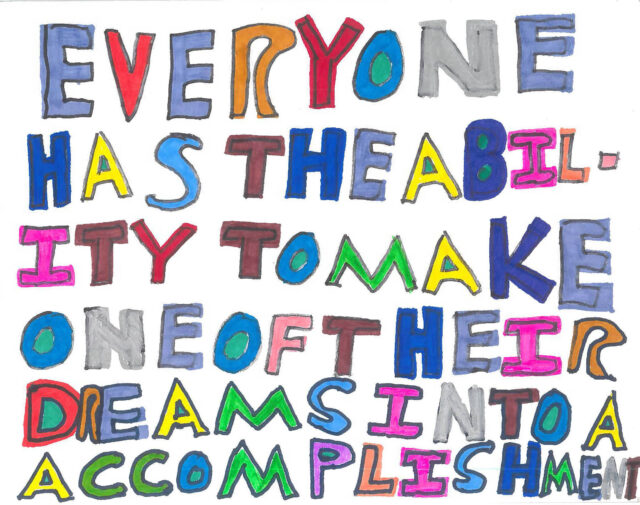Many people with developmental disabilities are, and have been using SDM informally, without legislation, and will continue to do so. But there are a number of reasons why SDMA legislation is necessary to assure the SDM is an available less restrictive alternative to guardianship. These include: ending discrimination against Decision-Makers with developmental disabilities; removing disincentives to using SDM; and affirming that SDM is a viable alternative to guardianship.
Preventing/overcoming discrimination based on disability
Because of stigma, bias, or just plain lack of knowledge about what people with developmental disabilities are capable of, third parties, like health care providers, financial institutions, landlords, etc., assume that they lack legal capacity because of their disability. Even where a person with a developmental disability has a properly executed heath care proxy or other document intended as an alternative to guardianship, third parties may still refuse to accept those documents, or the decision of the person, and insist instead that a guardian must be appointed in order for them to provide the requested service or enter into the requested agreement.
We live in a very litigious society, with almost everyone afraid of being sued; when people with developmental disabilities are concerned, there is fear that after the service is performed, the care given, or the transaction completed, someone will come forward and claim that the person with DD lacked capacity to consent, or enter into the transaction, and a costly law suit may follow. Better to insist on a guardian—then there can be no question of legal authority since the court appointed them.
An SDMA statute solves this problem. Once the third party is presented with a statutorily approved SDMA, they are required to accept the Decision-Maker’s decision/consent, and, so long as they do so in good faith, they are relieved from any civil or criminal liability and, if the statute provides, from any professional discipline. This is especially important for doctors and other health care providers who are required to obtain “informed consent.”
Removing disincentives to trying and/or using SDM
A second important reason is directly connected. Because parents may have experienced third party non-acceptance of decisions made by their adult children with developmental disabilities, or have been told in advance that it will occur when their children reach 18, or because they know of others to whom it has happened, they are incentivized to seek guardianship even if their children do not need it, or if less restrictive alternatives, including SDM, are available. (For an example, click here). In numerous information sessions with parents, SDMNY staff have heard the following, or some variation on it:
Why should we and our adult child go through all the work and time involved in making an SDMA when, at the end of the day, some doctor is going to tell us that they won’t accept our adult child’s consent to treatment, and that if we really want that treatment, we need to get guardianship?
An SDMA statute definitively answers that question; the doctor must accept the consent, and cannot be sued or professionally disciplined for doing so. An independent evaluation commissioned by SDMNY demonstrated that virtually every parent or other putative petitioner for guardianship believed that “legalizing” SDM, and giving statutory recognition to SDMAs was important, and would be an important factor in deciding to try SDM instead of guardianship. To the extent that SDM constitutes a less restrictive alternative to guardianship for many people with developmental disabilities, legal recognition of SDMAs through legislation makes it exponentially more likely that parents and others will be willing to try it rather than depriving their adult children of all their legal rights because of what a third party who fears liability, or who is biased against persons with disabilities, may say.
Affirming SDM as a viable alternative to guardianship
Studies, and our experience at SDMNY, show that parents are told, virtually from the time their children receive a diagnosis, that they should pursue guardianship when those children become legal adults. This message is reiterated and amplified by schools, health care professionals and other parents, so that by the time their children reach 18, guardianship appears both natural and necessary. Studies also show that many parents are unaware of the draconian consequences of guardianship, with the loss of all legal and civil rights, and are similarly unaware of alternatives.
SDM is still relatively new, and has not yet penetrated the education or health care systems, so it seems something of a risk for parents who have been told, again and again, that guardianship is the way, perhaps the only way, to protect their “vulnerable” children. Legislative recognition of SDM is enormously important to shift the balance toward considering a real and proven alternative, that is, as well, constitutionally required.
